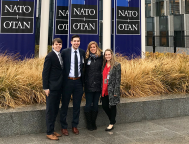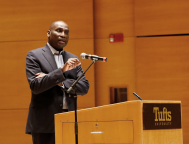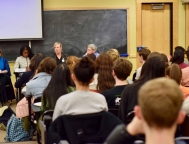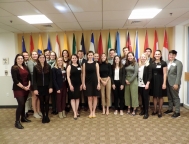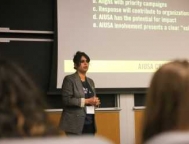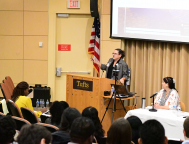Engaging with the World: My Time at the U.S. Mission to the EU by Laura Schiemichen (F’19)
The city of Brussels is currently transforming its shop windows: slowly, they are filled with lights, pine decorations, and a spiced shortcrust biscuit called speculoos. I am anxiously awaiting the first Christmas markets and the annual holiday transformation at le Grand Place.

